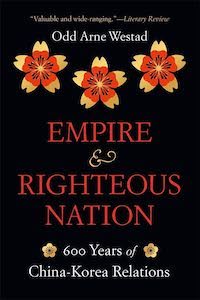Empire and Righteous Nation: 600 Years of China-Korea Relations
The book is a short, broad, and dense three-part book on the history of China-Korea relations. I found the book deeply insightful. The book moves fast. The first part of the book covers the years 1392 through 1866; the second the years 1866 through 1992; and the third covers modern relations between the nations. Personally, I found more value in the first two parts more than the contemporary section.
Here’s some insights I gathered from reading this.
The author applied Confucian principles to explain the relationship between the two nations in the first section of the book (pg 27)—
Understanding what it meant to be Korean or Chinese was impossible without understanding Confucian principles. They connected the two countries, and sometimes drove them apart through different understandings or applications of the same principles.
The relationship between the two nations can be framed one of the fundamental Confucian relationship, brotherhood (pg 41)—
The Ming were the older brother of the Chosŏn. The rights and obligations that existed between older and younger brothers in the Confucian rulebook also went for the relationship between the two states.
Ultimately internal Chinese conflict in the years after the transition from the Ming to the Qing, along with Japanese ambitions changed the status quo (pg 87)—
For the Qing the full Japanese annexation of Korea was what they had dreaded most. And yet they were incapable of countering it. By 1910, domestic strife in China was again on the rise
Overall the book is well worth a read. Easy, quick, and meaningful. I highly recommend it.
